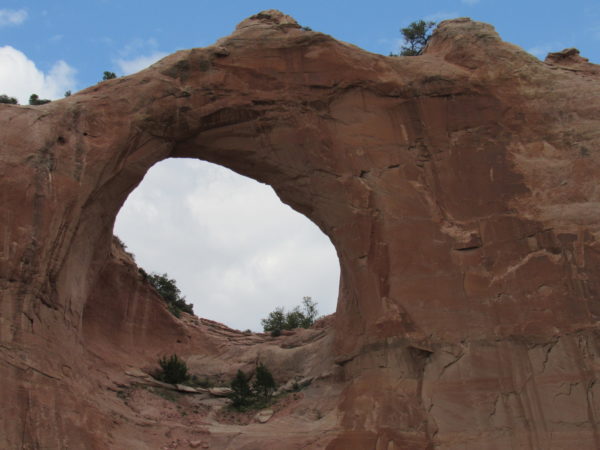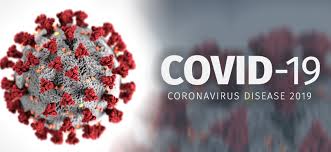
- Details
- By Levi Rickert
With three confirmed cases, Navajo Nation seeks to contain spread of coronavirus
WINDOW ROCK, Ariz. — With three confirmed cases of COVID-19 — and more expected — the leaders of the country’s most populated Indian reservation are working on containment of the deadly virus.
On Tuesday, leaders of the Navajo Nation announced that two of its citizens tested positive for COVID-19, commonly referred to as the novel Coronavirus. Both citizens accessed the health system at the tribe’s Kayenta Indian Health Service Unit when they experienced symptoms associated with COVID-19. Both were quickly transferred to a Phoenix, Ariz. hospital where they are quarantined.
 Navajo health officials said family members will be screened and visits to the individuals’ homes will take place for investigation as to how the individuals may have contacted the virus.
Navajo health officials said family members will be screened and visits to the individuals’ homes will take place for investigation as to how the individuals may have contacted the virus.
Late Wednesday evening, reports of a third Navajo citizen with the virus emerged. The third individual is a 62-year-old male from the same region as the first two confirmed cases within the Kayenta IHS Service Area, according to a news release. Officials are in the process of determining the extent of the relation of the cases.
“The responsibility is upon all of us as individuals to help keep each other safe and healthy by practicing social distancing and self-isolation – staying home is key to preventing the spread of the COVID-19 coronavirus," Navajo Nation President Jonathan Nez said in a statement. "Please continue to pray for these individuals, their families, and all of the people of our Nation."
The Navajo Health Command Operations Center is considering issuing a shelter-in-place order for the community of Chilchinbeto, which would require residents to remain in their home due to the spread of the virus, the statement said. On Wednesday, President Nez and Vice President Myron Lizer issued notice of enhanced travel restrictions, encouraging all citizens not to travel unless travel is necessary to obtain essential items such as groceries, medication, emergencies, medical appointments, and livestock care. The notice also urges all citizens to stay home for a period of at least 15-days.
A Public Health Emergency Order was also issued requiring restaurants to operate at no greater than 50 percent of maximum occupancy and no greater than 50 percent of seating capacity. In addition, tables and booths may not seat more than six people, and all occupied tables and booths must be separated by at least six-feet, limiting employees to “essential staff,” and displaying prevention and awareness signage for patrons.
The notice also limits fast-food businesses to drive-thru services, suspends all flea markets and indoor/outdoor markets, and prohibits gatherings of 10 or more with exemptions for retail or grocery stores, and hospitals, among others. They also initiated efforts to minimize travel to and from the Navajo Nation. Billboards on the Navajo Nation also began displaying information encouraging the public to self-isolate.
“We are not closing off roads, but we are asking all visitors to respect the sovereignty of the Navajo Nation and adhere to the travel restrictions to protect the health of all people,” stated President Nez.
Given the potential for the virus to spread, Navajo leaders have asked tourists to limit travel onto the reservation. The Navajo Nation has closed tourist sites, including the Navajo Museum, Navajo Zoo and parks and recreation areas. Navajo Nation Schools and casinos are closed, as well.
The closings will impact the plans of many tourists and volunteers. Typically, during spring break, many tourists visit the Navajo Nation. It also is the time of year when Christian churches or groups send people to the reservation as part of their outreach programs.
While closing tourist sites and requesting that visitors limit travel are voluntary measures, a complete ban of non-residents, which one Navajo Nation leader referred to as “outsiders” earlier today, is being considered.
“Everything on the table is being considered,” Navajo Nation Vice President Myron Lizer said during a press conference this morning. “Limiting outsiders from entering onto Navajo land is an option. It has yet to be decided. Nothing is off the table.”
Unfortunately, rumors began after the press conference that borders of the Navajo Nation were closing. On Wednesday evening, Navajo Nation Speaker Seth Damon issued a message clarifying the state of the Nation’s borders in light of developing responses to coronavirus (COVID-19).
“We want to assure the public that any Navajo person wanting to return home to relatives or family members, that they will not be turned away at Navajo Nation borders. We still want to urge caution, however, if anyone is returning from areas with confirmed COVID-19 cases. It’s important that we utilize this moment to spread the message that fever, cough or shortness of breath symptoms should be checked by health care professionals,” Speaker Seth Damon said.
During the press conference, several health officials addressed the unique challenges of dealing with the COVID-19 pandemic on Navajo Nation, including lack of broadband that can limit communications for tribal citizens.
Family living situations may also cause challenges during the COVID-19 outbreak. Traditionally, Navajo families live in homes occupied with multiple generations. This is important because with COVID-19, older adults are much more vulnerable to become infected with the virus.
Navajo Nation asked that people living on the reservation stay home as much as possible and follow the Centers for Disease Control and Prevention (CDC) guidelines to contain the deadly virus, particularly to wash their hands with soap and water for 20 seconds.
Questions from the public may be directed to the Navajo Health Command Operations Center at (928) 871-7014. If a person has symptoms related to the COVID-19 virus, please contact your local health care center prior to your arrival. Please see list of health care center on the Navajo Nation:
Chinle Comprehensive Health Care Facility
(928) 674-7001/7688
Crownpoint Health Care Facility
(505) 786-5291/6381
Fort Defiance Indian Hospital Board, INC
(928) 729-8000
Gallup Indian Medical Center
(505) 722-1000
Sage Memorial
(928) 755-4500
Kayenta Health Center
(928) 697-4000
Northern Navajo Medical Center
(505) 368-6001
Tuba City Regional Health Care
(866) 976-5941
Utah Navajo Health System
(866) 976-5941
Winslow Indian Health Care Center
(928) 289-4646
Arizona Poison and Drug Information Center
(844) 542-8201
New Mexico Coronavirus Hotline
(855) 600-3453
More Stories Like This
Native News Weekly (August 25, 2024): D.C. BriefsNative News Weekly (February 22, 2026): D.C. Briefs
NCAI Releases Sttatement on the Passing of Rev. Jesse Jackson
Colusa Indian Energy Participates in Port of Quincy Town Hall on Columbia Basin Power Project
Q&A: Jingle Dress Dancer Answered Call to Ceremony in Face of ICE Violence
Help us defend tribal sovereignty.
At Native News Online, our mission is rooted in telling the stories that strengthen sovereignty and uplift Indigenous voices — not just at year’s end, but every single day.
Because of your generosity last year, we were able to keep our reporters on the ground in tribal communities, at national gatherings and in the halls of Congress — covering the issues that matter most to Indian Country: sovereignty, culture, education, health and economic opportunity.
That support sustained us through a tough year in 2025. Now, as we look to the year ahead, we need your help right now to ensure warrior journalism remains strong — reporting that defends tribal sovereignty, amplifies Native truth, and holds power accountable.
 The stakes couldn't be higher. Your support keeps Native voices heard, Native stories told and Native sovereignty defended.
The stakes couldn't be higher. Your support keeps Native voices heard, Native stories told and Native sovereignty defended.
Stand with Warrior Journalism today.
Levi Rickert (Potawatomi), Editor & Publisher

